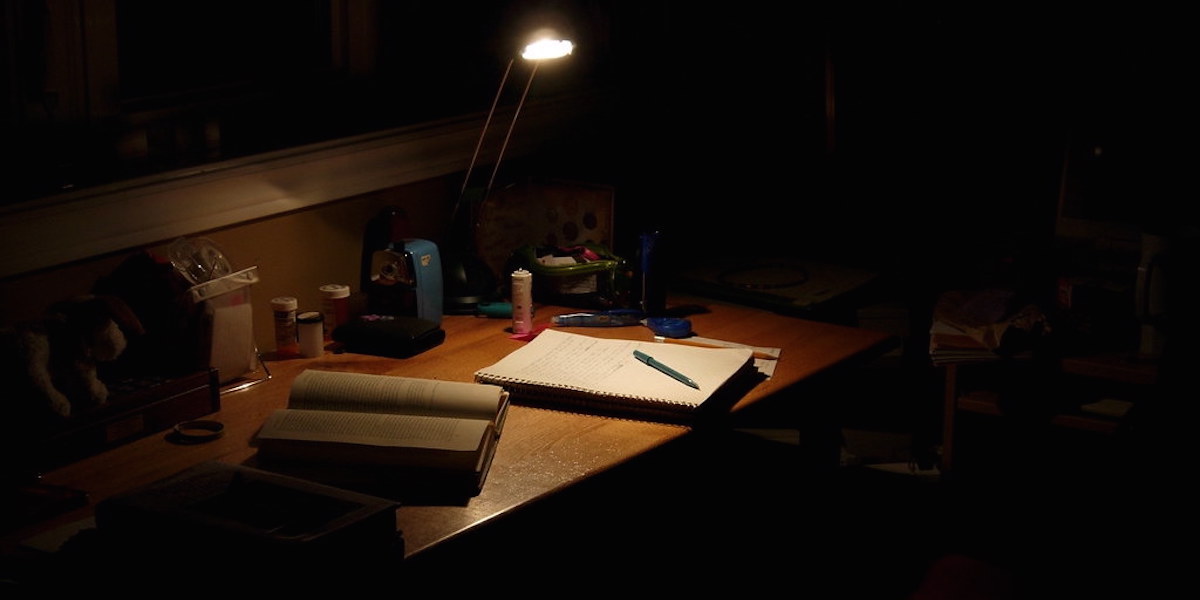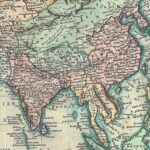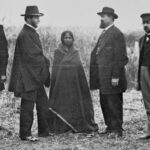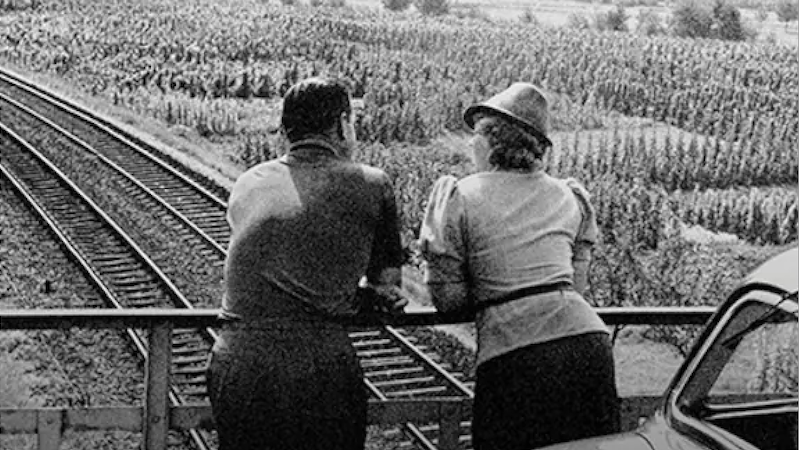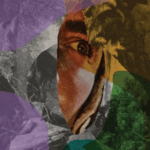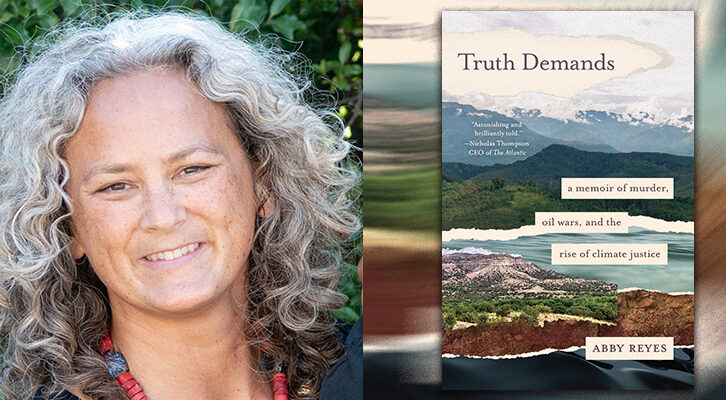Insomnia, Imposter Syndrome, and All the Ways I Learned to Write My Book
"In order to tell the truth out loud, on the page, I needed to learn to be compassionate with myself"
Faint light from the streetlamp outside threaded the curtains, casting my bedroom ceiling the color of a bruise. For hours, I had lain in bed, staring at the dark pooling around me. Soon enough, the day would break, and I would need to pick up the shards of the night to do all my various jobs: packing lunches, finding lost socks, getting my kids to school, and then, eventually, hopefully, making any progress on the book I’d been paid to write. But I knew by this point, having had many such nights in recent weeks, that this insomnia would cast my day in a haze, would turn my brain into something resembling the oatmeal I needed to get up and make.
What had started these weeks of sleeplessness was, in fact, good news: while working on my book, The Cost of Free Land: Jews, Lakota and An American Inheritance, I won the Whiting Creative Nonfiction Grant, a prestigious award that meant I now had sufficient funds to complete my project and do it well. I feared it also meant that people might actually read the book when it was published.
My anxiety, my failure to sleep was born from a concern that, having been given a shot, I would give it away. I feared that my writing would not only miss the mark, but by making some error, I would cause harm to the Lakota community I was writing about. This anxiety built on other fears, spawned a few months prior, when my great-aunt, our family historian and matriarch, had asked me—no, told me—to keep certain family secrets, secret and out of my book.
The Cost of Free Land retells the intertwined histories of my Jewish homesteading ancestors and their Lakota neighbors on the South Dakota prairie, revealing the consequences of America’s taking of Indigenous land. The book debunks long-held American myths and grapples with how those of us who have benefitted from federal policies at great cost to Native Americans can step towards repair. I’d started this project with two central questions: What are the stories we tell in both families and countries? And what myths are created by the stories we leave on the cutting room floor? Suddenly, I had no answers. Suddenly, I found it very hard to do any writing at all. And none of my old tricks to push myself to produce were working.
*
By the time of my insomnia, I’d been a journalist and occasional novelist for more than twenty years, much of that time spent writing for magazines. My recipe to meet deadline was simple. I’d procrastinate to the point of self-loathing. This meant instead of writing, I’d binge-watch television, go running, organize my sock drawer, read one more journal article or interview one last person, anything to avoid the blank page. Writing is a job that’s 67 percent whining and I’d do plenty of that too, calling friends and family to report how impossible it would be to write my assigned story. At last, deadline looming, I’d surrender with despair into my desk chair. I’d draft an outline in all caps, as if my screen were yelling at me, and then, copy and paste the quotes or dialogue I planned to use so that by the time I got around to drafting sentences, the page looked crowded, friendly. And finally, I could cobble it all together.
In order to tell the truth out loud, on the page, I needed to learn to be compassionate with myselfThe reporting, the research, the interviewing people in the places where they lived, people whose paths I would never cross if I didn’t have an article to write about their community or life—all that I have always loved. I love how reporting both expands my sense of the world and shrinks it to a size I can engage. Little of that has anything to do with the work of stringing sentences together but it’s a skill I’ve come to rely on not only for work, but to understand myself. Faced with repeated miscarriages, sick family members, parenting dilemmas, I’ve reported out my emotional experience, talking to people who have different lived experience on the given topic, and writing it all down.
So, when I was living without sleep, a dark night of the soul that lasted for months, at last I remembered what I had always done. I talked to people who had dealt with their own insomnia. I reached out to trusted Indigenous mentors about how to write with sensitivity about Native culture. I read books by author’s who had also struggled with writing about their own family. And as so often happens when reporting, I learned something surprising. It would change the way I write.
*
On a cool overcast day, I took a walk with my rabbi, Benjamin Barnett, leaves crunching under our feet. He reminded me that these fears and concerns of mine weren’t new, they had plagued me since I first set out to write this book. And he told me again, what he’d been telling me all along: be compassionate and be honest. I wrote truth + compassion on a piece of paper and taped them to the wall above my desk.
Judge Abby Abinanti, Chief Justice of the Yurok Nation and a trusted mentor, listened to me, her careful consideration evident through the phone. She paused a few long moments before responding, If I failed to tell a full story about my family, she told me, I wouldn’t only absolve them, but the systems that put us in precarious situations. If we keep secrets, she explained, we don’t understand the past, and so, we don’t have the opportunity to take responsibility and share the fault.
Following their advice meant doing something new, something I’ve been warned against doing my entire career: I let my closest sources, both the Lakota elders and my own Jewish family quoted in the book, read an early draft (when one of them was blind, I read the entire manuscript to him over the phone, one chapter at a time for a couple of weeks.) I learned from Lakota sources what I’d gotten wrong, how to be more culturally sensitive. With time and many conversations, my aunt went from being upset and embarrassed that long-held secrets about our family’s involvement in bootlegging, about domestic violence, to telling me how proud she was of me, how she felt that we “come out on the same page.” This early input didn’t compel me to make any significant changes, to keep more secrets, but it allowed me to be transparent and to take the time and space to hear and discuss other people’s concerns.
In order to tell the truth out loud, on the page, I needed to learn to be compassionate with myself. After interviewing several writers and friends who also struggle with insomnia and imposter syndrome, I have a new approach, one I share here in in the hopes it could be useful.
Step one: straighten your desk. Step two: make a to-do list. I make a line in the middle of the page. Below the line is all the crap I have to do that has nothing to do with writing, this could include things like, buy kids new shoes, or return email to X, interview Y. But above the line is where my day begins, this is the writing to-do list. It shouldn’t say write book, but something that’s reasonable to think you could accomplish today, such as write opener for chapter 6. Step 3: meditate for five minutes (It took me a long time to think I had any time in my day for meditation until my Dad pointed out that I found time to shower (mostly) and to eat and to brush my teeth. That 5 minutes of meditation should be considered in the same category.). Step 4: I consider how much I honestly have to offer the page. Can I write for 45 minutes without stopping? Can I go for an hour and a half? Would I prefer to jack around on social media all morning? Somehow, just by giving myself permission not to write, I find I don’t procrastinate. Then, I set a timer for the agreed upon time span and for that duration, I put my phone on silent, and I don’t check the internet or email. Step 5: When the timer rings, I take a quick break for a snack or a stretch. I check my phone and respond to any urgent emails or calls. Then I repeat Step 4. Only after I’ve gotten through a chunk of my above the line to-do list do I get to the bits below the line. I spend the afternoon doing research and making phone calls but the morning is for writing.
(Note: I’m more productive in the morning which is why I do this first thing, but of course not everyone is like this. Maybe you’ll find that starting this process after dinner will be your ideal.)
I used to say: writing is hard, it’s always hard, it never gets easier but now I don’t really think that’s true. What never gets easier isn’t writing, but the fear and the vulnerability stirred up by writing something with an eye towards being read. Sometimes I think about The Cost of Free Land being out in the world, and I want to throw up in my mouth. But then I remind myself, with as much kindness as I can muster, the truth: I’m a person who has long been fixated by the fact that it’s difficult to ever really know if the way I understand the world is the way anyone else does. An imperfect solution, writing is the best way I know to stretch my questions and myself, beyond my own mind, onto the page, where, if I’m lucky, someone will read and consider my words and in that way, we are more connected.
__________________________________

Rebecca Clarren’s The Cost of Free Land: Jews, Lakota and an American Inheritance is available from Viking.

